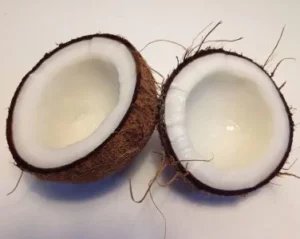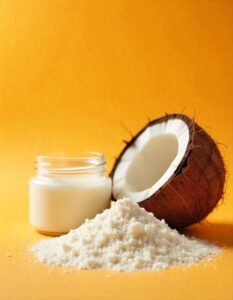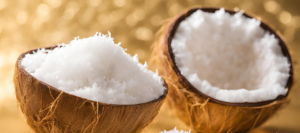Hidden Treasures: Discover Export Insights of Coconut Farming in India
Meta Title: Hidden Treasures of Coconut Farming in India: Export Insights
Coconut farming has been an integral part of Indian culture and economy for centuries. Known as the “Tree of Life,” the coconut tree offers a plethora of benefits and resources. India, being one of the largest producers of coconuts in the world, has a rich history of coconut farming and exports. In this article, we will delve into the hidden treasures of coconut farming in India and explore the export insights that make it a thriving industry.
Coconut Farming in India: A Brief Overview
India’s tropical climate and favorable conditions make it an ideal place for coconut cultivation. With around 1.9 million hectares of coconut farms, the country produces approximately 21 billion coconuts annually. Coconut farming is spread across several states in India, including Kerala, Tamil Nadu, Karnataka, Andhra Pradesh, and Maharashtra.
The cultivation of coconuts in India follows traditional and sustainable practices. Farmers take great care in selecting the right variety of coconut trees, ensuring optimal growth and productivity. Additionally, these farms often adopt organic farming methods, minimizing the use of pesticides and chemical fertilizers to maintain the quality and health of the coconuts.
The Abundance of Mature Coconuts
Mature coconuts, also known as brown coconuts, are the most commonly exported form of coconuts in India. They have a hard outer shell and contain a substantial amount of coconut water and meat. India’s export market for mature coconuts is expansive, catering to both domestic and international demands.
One of the key reasons mature coconuts from India are highly sought-after is their superior taste and quality. The coconuts are harvested at the right stage of maturity, ensuring a sweet and refreshing coconut water experience. These coconuts are also known for their thick and creamy meat, perfect for various culinary preparations and health-focused products.
The Versatile Coconut Byproducts
Aside from mature coconuts, coconut farming in India also offers a wide range of valuable byproducts. The entire coconut tree is utilized, leaving no waste. Some of the significant coconut byproducts include:
Coconut Oil: India is a leading exporter of coconut oil, renowned for its exceptional quality. Cold-pressed from the fresh meat of coconuts, this oil is known for its health benefits, versatility in cooking, and applications in cosmetics and skincare.
Coconut Milk and Cream: Extracted from grated coconut meat, coconut milk and cream are popular ingredients in various regional and international cuisines. They add a unique flavor and texture to curries, desserts, and beverages.
Coconut Flour: Made from dried and ground coconut meat, coconut flour is gluten-free and a popular choice for people with dietary restrictions. It is used in baking and as a nutritious alternative to regular flour.
Coconut Fiber: The strong and durable fibers obtained from coconut husks are used in making ropes, mats, brushes, and other handicrafts. In recent years, coconut fiber has gained popularity as a sustainable material in the manufacturing industry.
Coconut Shell Charcoal: Coconut shell charcoal has excellent adsorption properties, making it a sought-after material for water and air purification. It also finds applications in activated carbon production and as a fuel source.
Export Insights and Opportunities
The export of mature coconuts and coconut byproducts presents significant opportunities for Indian farmers and exporters. The demand for Indian coconuts and their byproducts spans across various industries and countries.
India’s robust infrastructure, including ports, transportation networks, and packaging facilities, ensures the timely and efficient export of coconuts. Additionally, the country’s strict quality control measures guarantee that the exported coconuts meet international standards.
Creating partnerships with international buyers, wholesalers, and distributors opens doors for Indian coconut exporters to reach newer markets across the globe. Moreover, promoting the diverse applications and health benefits of coconut byproducts can further broaden the export opportunities.
Sustainable Practices for a Thriving Future
As the global demand for organic and sustainable products continues to rise, the coconut farming industry in India is well-positioned to deliver. The traditional farming methods and organic practices adopted by Indian farmers align with the growing preferences of conscious consumers worldwide.
Furthermore, Indian coconut farmers are increasingly adopting innovative technologies for irrigation, pest control, and quality enhancement. These advancements ensure sustainable production while minimizing the environmental impact.
Conclusion
The hidden treasures of coconut farming in India are not limited to the abundance of mature coconuts and versatile byproducts. Its export insights and opportunities are expanding the reach of Indian coconuts to all corners of the world. With sustainable practices, quality assurance, and a diverse range of products, India continues to establish itself as a leading exporter in the coconut industry.
Whether you’re a food enthusiast, health-conscious individual, or an entrepreneur looking for exciting export options, the hidden treasures of coconut farming in India offer endless possibilities. Embrace the aromatic essence, natural goodness, and valuable resources of Indian coconuts, and embark on a journey enriched with the wonders of this tropical treasure trove.
Note: For more information on our Mature Coconut and Coconut Byproducts Export services, please visit grofarm ug.



